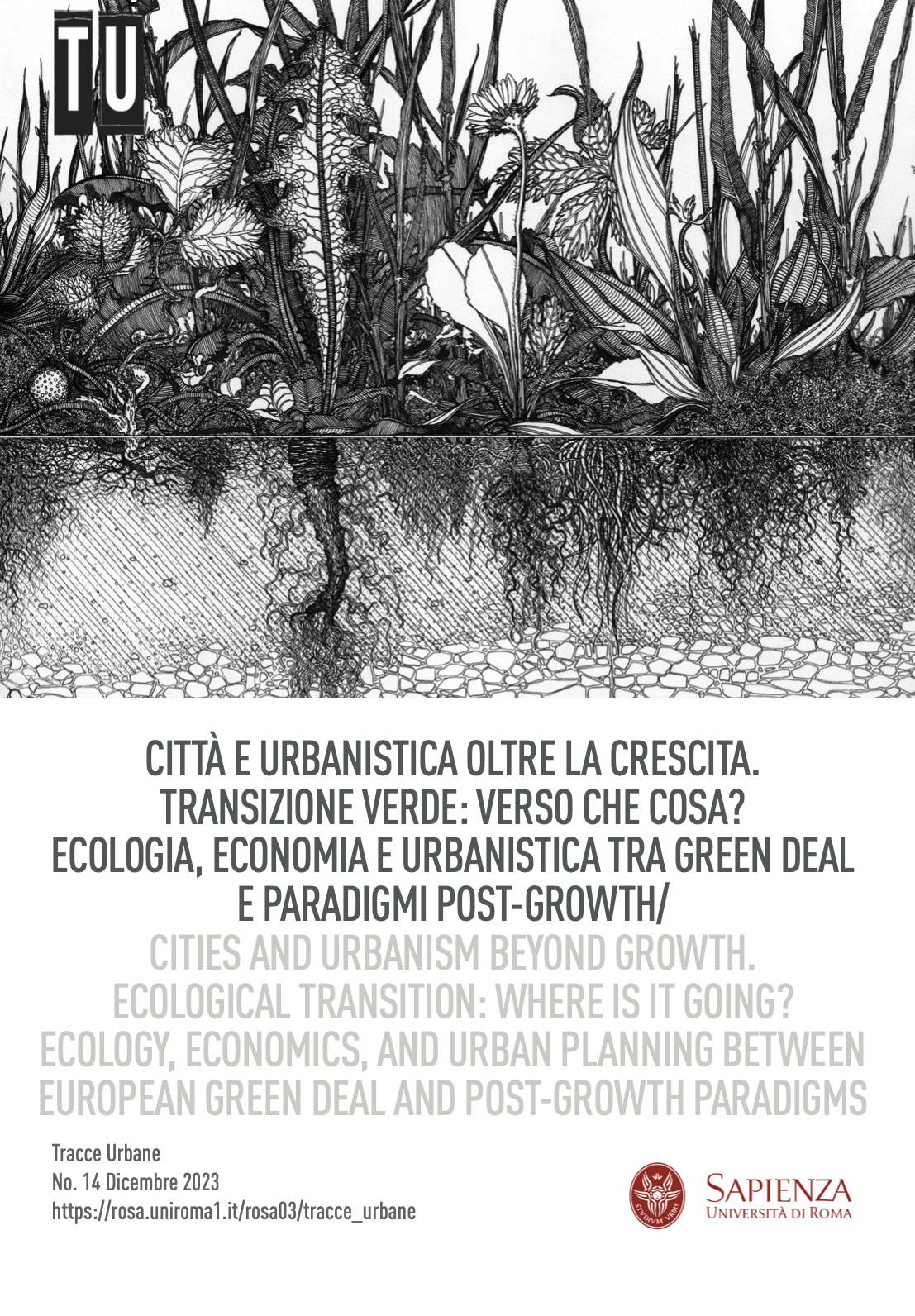Green transition: new ingredients for old recipes
DOI:
https://doi.org/10.13133/2532-6562/18493Abstract
The theme of the so-called green transition, if approached with a vision that goes beyond the simple adoption of green technologies, involves an epistemological dimension which has its roots in the interconnections between economy (man) and ecology (nature). This leads to the difficulty of offering an exhaustive reading of the topic, because of the diversity of approaches to refer win satisfying the growing need to find solutions to long-term human development.
In such a framework, this contribution proposes an interpretation of the relationships between economy and environment that takes into account the transdisciplinary nature of the concept of sustainability.
This paper opens with a brief review of the evolution of economic doctrine up to neoclassical thought, whose limits in describing the relationships between the economy and the environmental and social dimensions are highlighted. These considerations represent the basis for discussing the anthropocentric moral roots underlying orthodox economics and proposing a different paradigm which, moving from an ecocentric vision, is able to explicitly consider the environmental implications of the economic process and provide an unambiguous definition of sustainability.
References
Biagetti E., Gislon G., Martella A., Zucali M., Bava L., Franco S., Sandrucci A. (2023). «Comparison of the use of life cycle assessment and ecological footprint methods for evaluating environmental performances in dairy production». Science of the Total Environment, 905: 166-845.
Bonaiuti M. (2001). La teoria bioeconomica. La “nuova economia” di N. Georgescu-Roegen. Roma: Carocci ed.
Brundtland G.H. (1987). «Our common future». Oxford (USA): Oxford University Press.
Common M., Stagl S. (2005). Ecological Economics. An Introduction. Cambridge: Cambridge University Press.
Costanza R., Cumberland J., Daly H.E., Goodland R., Norgaard R. (1997). An Introduction to Ecological Economics. Boca Raton: CRC Press.
Daly H. E. (2001). Oltre la crescita. L’economia dello sviluppo sostenibile. Torino: Edizioni di Comunità.
Denis H. (1998). Storia del pensiero economico. II ed., Milano: Mondadori.
Franco S., a cura di, (2019), «Le relazioni fra sistemi economici e ambiente: dall’approccio neoclassico al modello bioeconomico», PasSaggi, 4(9).
Franco S. (2020). «Riflessioni su una (bio)economia per la casa comune». Antonianum XCV: 95-125.
Franco S., Bez B., Biagetti E. (2021). «La natura transdisciplinare fra economia ed ecologia del concetto di sostenibilità». In: Castiglione O., D’Urso S., a cura di, La dimensione multidisciplinare della sostenibilità. L’approccio della Bauhaus nell’epoca dell’emergenza ambientale. Roma: Tab edizioni, pp. 151-180.
Georgescu-Roegen N. (1971). The entropy law and the economic process. Cambridge (USA): Harvard University Press.
Georgescu-Roegen N. (2003). Bioeconomia. Verso un’economia ecologicamente e socialmente sostenibile. Torino: Bollati Boringhieri.
Meadows D.H., Meadows D.L., Randers J., Behrens W.H. (1972). The Limits to Growth. New York: Universe Books.
Neumayer E. (2003). Weak versus strong sustainability: exploring the limits of two opposing paradigms. II ed. Cheltenham, UK: Edward Elgar.
Downloads
Published
How to Cite
Issue
Section
License
Copyright (c) 2024 Francesca Pietrangeli, Silvio Franco

This work is licensed under a Creative Commons Attribution 4.0 International License.
NOTA DI COPYRIGHT
Proposta di licenza Creative Commons
1. Proposta per riviste Open Access
Gli autori che pubblicano su questa rivista accettano le seguenti condizioni:
Gli autori mantengono i diritti sulla loro opera e cedono alla rivista il diritto di prima pubblicazione dell'opera, contemporaneamente licenziata sotto una Licenza Creative Commons - Attribuzione che permette ad altri di condividere l'opera indicando la paternità intellettuale e la prima pubblicazione su questa rivista.
Gli autori possono aderire ad altri accordi di licenza non esclusiva per la distribuzione della versione dell'opera pubblicata (es. depositarla in un archivio istituzionale o pubblicarla in una monografia), a patto di indicare che la prima pubblicazione è avvenuta su questa rivista.
Gli autori possono diffondere la loro opera online (es. in repository istituzionali o nel loro sito web) prima e durante il processo di submission, poiché può portare a scambi produttivi e aumentare le citazioni dell'opera pubblicata (Vedi The Effect of Open Access).


